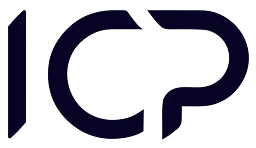New cooperate project in 2022
Every project management that we carry out, regardless of whether we are a company or a freelancer, can be implemented in many ways.

Tell our team about your needs and we will customize the tool as part of your chosen package!
Every project management that we carry out, regardless of whether we are a company or a freelancer, can be implemented in many ways. Project managers use various methods and different tools to achieve their goals when working with a client. Skillful building of relationships, an effective project team cor obtaining certificates (e.g. PMI) can translate into the success of the deployment.
The best practices and the most frequent mistakes that could seriously compromise the timely completion of any project are described in the section that follows.
"With" and "for" — cooperating on the project
The difference between working "with the client" and "for the client" is huge. While working with the client on one task, it is easier to build a mutual relationship. Both sides are engaged just as much. This does not mean that the client sits with our programmers and writes code with them, but – for example – takes part in the testing of a function of the code, provides tools for deployments, or helps in other matters. Effective collaboration on a project leads to increased trust between both parties and allows them to keep the promises made. However, it is worth remembering that the client is not only our partner, but they also finance our venture. Thus, it is important to remember the business aspect of the project. Sometimes both sides of a business relationship will go on to establish friendly ties, but that's not always the case. So, it is worth paying attention to what expectations the other party has as regards the mentioned relationships. A lot of companies just want to close the project without unnecessary interaction.
When we work for someone else, we bear less responsibility for the project. There is also less direct control on the part of the client. They do not influence many stages of action or the selection of tools used by us. In this situation, tasks and terms are strictly determined as well. Working with the client and learning how to work for the client is worthwhile because along the way we will encounter both clients who want to be a part of the effective project team and clients who simply want a ready-made product.
Collaborative team in project management
Effective communication is necessary for the collaboration of individuals from different departments who cooperate to accomplish a common goal. Project management is a process that helps to ensure that teams can work together effectively to complete a project. The project manager is responsible for ensuring that all team members have the necessary skills and knowledge and that they understand the project goals. Furthermore, the project manager will develop a project plan that outlines the tasks that need to be completed and the timeline for completion. Collaborative teams are essential for effective project management, as they allow for the different team members to share their ideas and expertise. By working together, teams can identify potential problems and come up with creative solutions. In addition, collaborative teams help to build trust and rapport, which are essential for any successful project.
Clients' satisfaction should be our priority.
A satisfied client will not only pay the invoice on time but also recommend our work to other people. Many companies do not bother looking for orders because clients come to them by recommendation. A good brand defends itself. not only with being on time but also with a high-quality product or service. It’s a bit too farfetched to say that our clients are brand ambassadors, but in many industries, the recommendation system works better than many online catalogs or keyword campaigns. Why is that? It is so as recommendation allows us to take orders almost instantaneously. The lead coming to us knows what they can expect, what our price lists are, and how we work because a lot of information is passed to them by the previous satisfied client. In the case of a lead coming, for example, from an online campaign, we cannot be sure if we have already won an order. This is where probing begins, so to speak, where the prospective client examines our skills and the costs they will have to incur. We do not negate that there will be no cooperation, but much more time might pass from the first contact with the client to the signing of a contract. That is why we need to be able to provide the best service for our business partners. Thanks to this, we know that in the future it may turn out that they become our unaware "traders".
Cooperation with the client - what should be remembered?
There are a few basic rules which we have to follow during our work with and for our clients. Not every company will use them all, but they should be taken into consideration when contacting business partners. The following are the most important ones:
- Each project has to be treated as a business venture—this means that it should have a schedule, budget, established milestones and a payment plan, expected results, etc. The more detailed data our client receives, the easier it will be to begin the next step of implementation. There is a period of "quiet work" in most projects, during which no effects are visible. This happens, for example, in artistic professions, in the IT industry, and the like, where the final product does not appear in a few seconds, and much time is needed to create it. We have to prepare the client for this situation so that they know that during this period, "magic happens" in our office;
- A contract is a basis for claims; the written form of the contract gives us the certainty that each party must fulfill their commitments, and in the case of claims, we have a "backing" that allows us to pursue our claims much more easily. A lot of companies on the market require a contract due to administrative regulations applicable to the enterprise. However, some companies arrange it all using "e-mail," for instance. It should be noted that arrangements saved on e-mail are also documents subject to court enforcement, but collecting all messages is sometimes difficult or impossible.
- This notion is not only about language but also about the means of communication and the archiving of the created correspondence. The dialogue should take place both ways. On one hand, we have to actively listen to the client’s needs; on the other hand, we have to provide them with an optimal amount of information that is necessary for the given stage of the project. Coming back to archiving: what we mean is the communication so that returning to topics touched on earlier is possible. Understatements and misunderstandings may be avoided, which, according to IT Cortex, are the causes of failure in 57% of projects;
- That said, we should not embark on projects which we are not able to finish because we do not possess appropriate knowledge or an adequate team. Situations in which we conceal a lack of our competitors may prove catastrophic in effect.
- Time is money—let us keep the set terms. If it turns out that we cannot meet one of the deadlines, then we have to inform the business partner as fast as possible, because it is worth knowing that delays translate to real loss, which neither we nor the client can afford.
What should be avoided?
Primarily, we cannot introduce hidden costs to our contract, which the client does not know at the time of signing the contract with us or determining its conditions. This type of action not only decreases trust towards us or the company but may also lead to the termination of cooperation as well as make a dent in our reputation. Naturally, at times we have to carry out a project in a different way, but all additional costs have to be consulted with the client.
Another thing is mutual trust, a collaborative environment, and working with full transparency. If we treat each other as partners, then we will also share knowledge as partners. Withholding information from the other party will not have a good effect on our relations.
As we can see, the rules for working with the client are quite simple. They are based on fundamental values well-known in society. The building of common relations should be based on respect, mutual understanding, transparency, and trust. If those fundamental values are lacking, there will also be no cooperation on a project that is built well or prepared with accuracy.
Also read

Which is a benefit of collaboration and teamwork?
Working with others can feel slower and more complex than working alone, yet collaboration continues to play a key role in learning and work. In this article, we take a closer look at the real benefits of teamwork and why it often leads to better results.
Try IC Project in your company Our team is ready to help!

Create a free account and test with no obligation




.png)